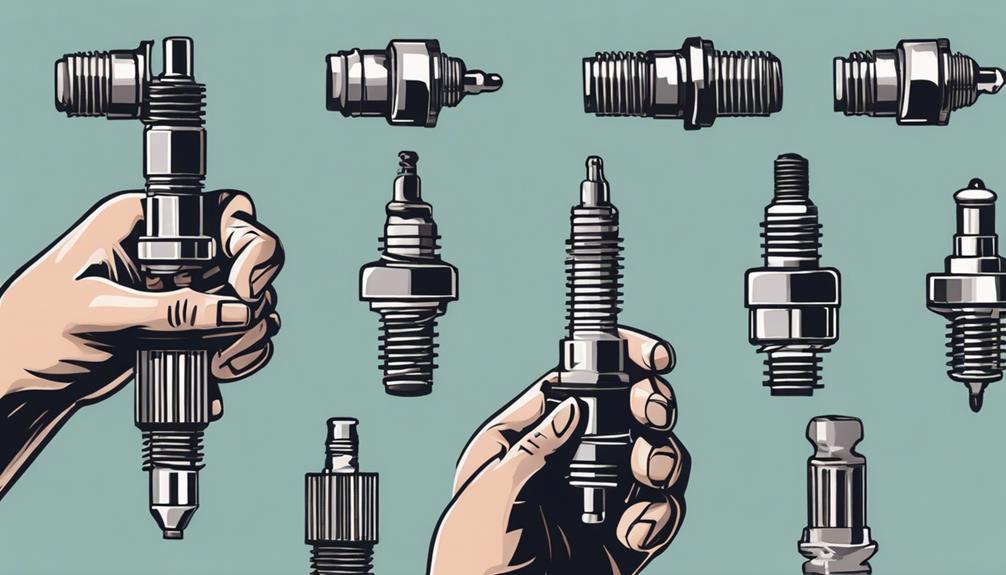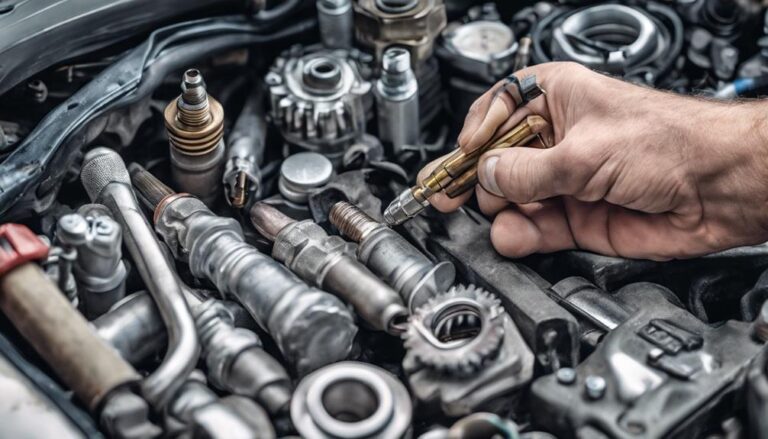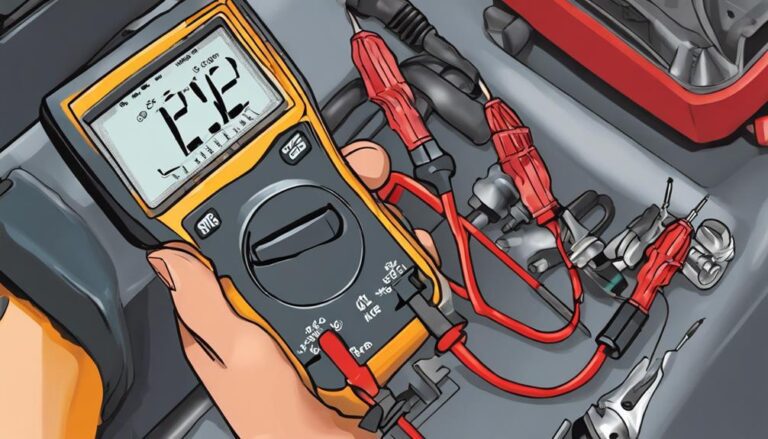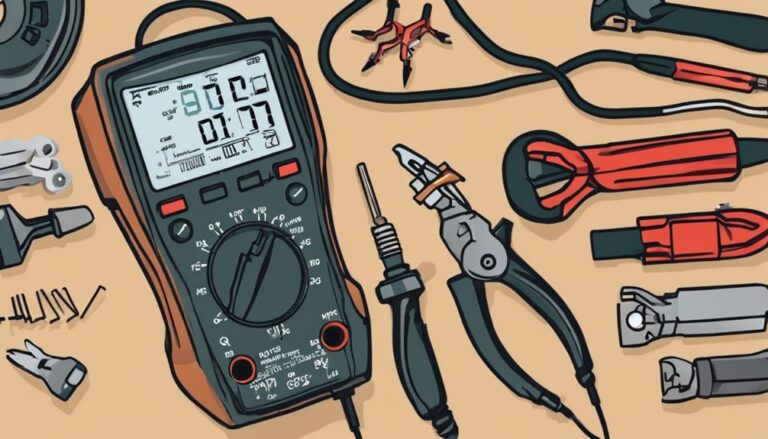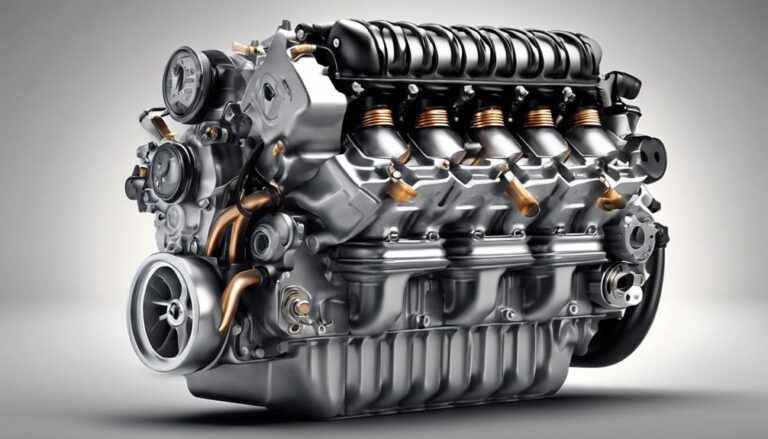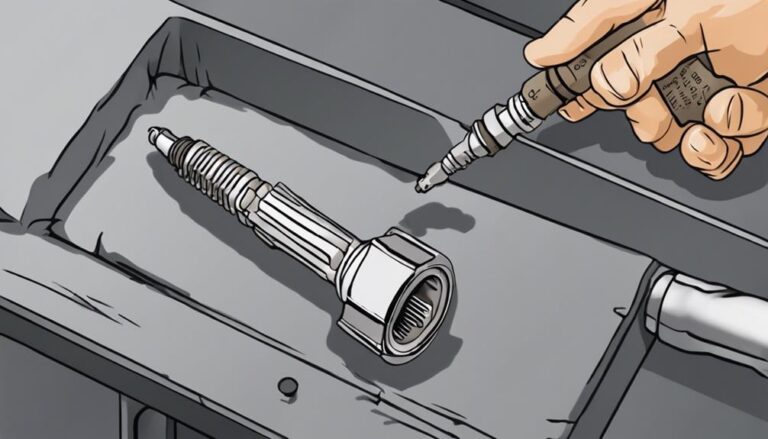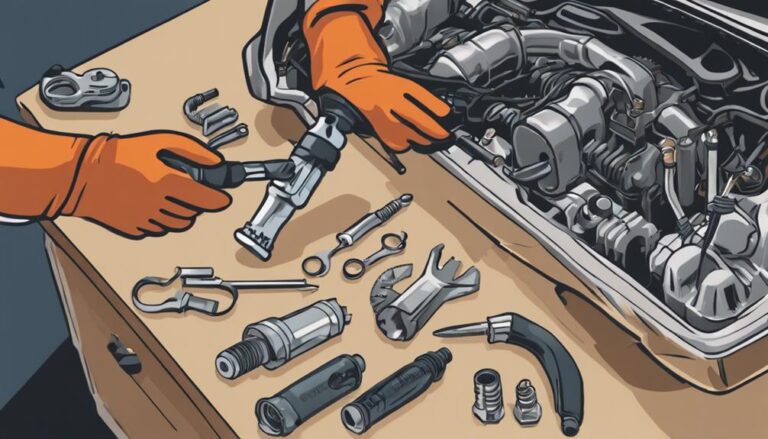What Are the Best Spark Plug Upgrades?
If you're looking to enhance your vehicle's performance, did you know that upgrading your spark plugs can increase horsepower by up to 2%?
Understanding the key differences between copper, platinum, and iridium spark plugs can help you make an informed decision on which type best suits your needs.
With each offering unique benefits in terms of conductivity, longevity, and wear resistance, the choice of spark plug upgrade can significantly impact your engine's efficiency and reliability.
So, which spark plug material will you choose for your next upgrade?
Key Takeaways
- Copper, iridium, and platinum spark plugs offer specific benefits for engine optimization.
- Consider durability, conductivity, and cost when choosing the best spark plug material.
- Coil upgrades enhance performance, reliability, and combustion efficiency for improved engine operation.
- Evaluate spark plug options based on longevity, performance, and efficiency to maximize upgrades.
Benefits of Copper Spark Plugs
Copper spark plugs excel in conducting electricity efficiently due to their copper-core center electrode, making them a top choice for optimal engine performance. The longevity of copper spark plugs is a notable advantage, offering a balance between durability and affordability. While they may require more frequent replacement, typically every 20,000 miles, their lower cost compared to platinum or iridium plugs makes them an attractive option for budget-conscious individuals.
Despite the need for more regular changes, the effectiveness of copper spark plugs in running cooler and providing enhanced power output in performance scenarios can't be overlooked. Their ability to cater to turbocharged engines and older vehicles with distributor-based ignition systems showcases their versatility and practicality. By combining affordability with commendable performance, copper spark plugs continue to be a popular choice among drivers looking for a cost-effective solution without compromising on engine efficiency.
Advantages of Iridium Spark Plugs
Iridium spark plugs boast superior durability and performance compared to their copper counterparts, making them a prime choice for engine optimization. The longevity advantage of iridium spark plugs is evident in their significantly harder and stronger composition compared to platinum, resulting in enhanced durability and wear characteristics.
With a higher melting point than platinum, these spark plugs can last up to 25% longer than comparable platinum ones. Additionally, the fine wire center electrode in iridium spark plugs contributes to improved electrical conductivity, enhancing overall performance benefits.
Despite being more expensive, ranging from $8 to $15 each, the investment in iridium spark plugs pays off with excellent ignition performance. For those seeking a reliable and long-lasting spark plug option that offers superior durability and performance benefits, iridium spark plugs stand out as a top choice.
Platinum Spark Plug Performance Analysis
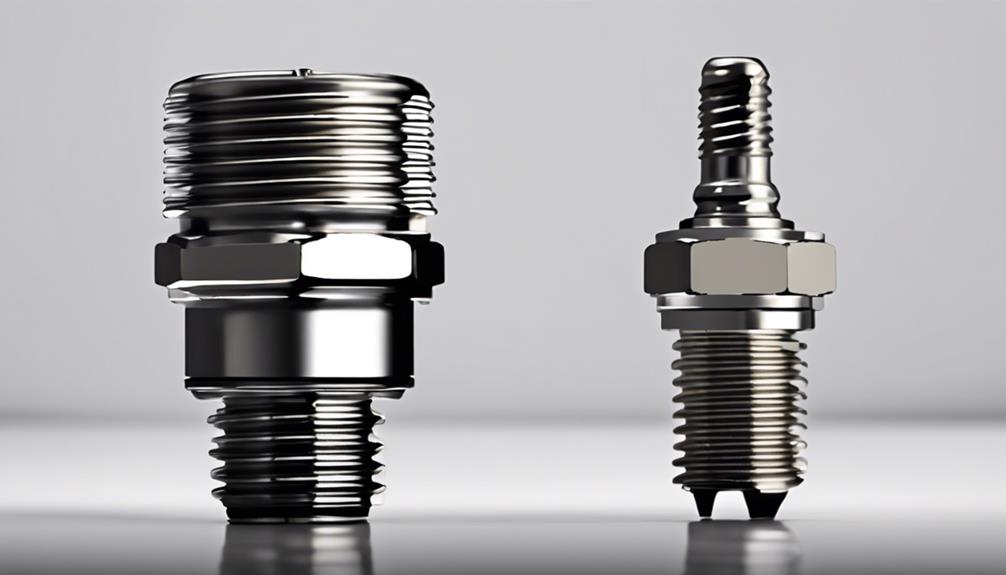
Analyzing the performance of platinum spark plugs reveals their longevity and efficiency benefits in engine operation. When considering the use of platinum spark plugs, several key factors come into play:
- Long Lifespan: Platinum spark plugs have a longer life expectancy, lasting up to 100,000 miles. This extended lifespan reduces the frequency of replacements, saving you time and money.
- Improved Heat Dissipation: These spark plugs run hotter than traditional ones, aiding in burning off deposits effectively. By running at higher temperatures, platinum spark plugs help prevent fouling in the engine, ensuring smooth operation.
- Variety of Options: Platinum spark plugs are available in single and double platinum varieties, catering to different engine requirements. This versatility allows you to choose the most suitable option for your specific vehicle.
- Enhanced Efficiency: Known for their durability and wear resistance, platinum spark plugs offer improved efficiency in the engine. The consistent performance they provide over an extended period contributes to the overall smooth operation of your vehicle.
Top Coil Upgrade Options
When considering upgrades for your vehicle's ignition system, exploring top coil upgrade options can significantly enhance performance and efficiency. Upgrading to high-performance coils offers improved durability, reliability, and can lead to enhanced ignition efficiency, resulting in better throttle response and smoother engine operation. These upgrades provide stronger and more consistent sparks for optimal combustion, ultimately boosting engine power. Aftermarket coil options can be a cost-effective way to improve engine performance and fuel efficiency. Check out the table below for a comparison of some top coil upgrade options:
| Coil Brand | Material | Performance Features |
|---|---|---|
| Brand A | High-grade steel | Enhanced spark intensity, improved ignition efficiency |
| Brand B | Copper alloy | Increased durability, better throttle response |
| Brand C | Titanium | Lightweight design, optimal combustion performance |
Choosing the Right Spark Plug Material
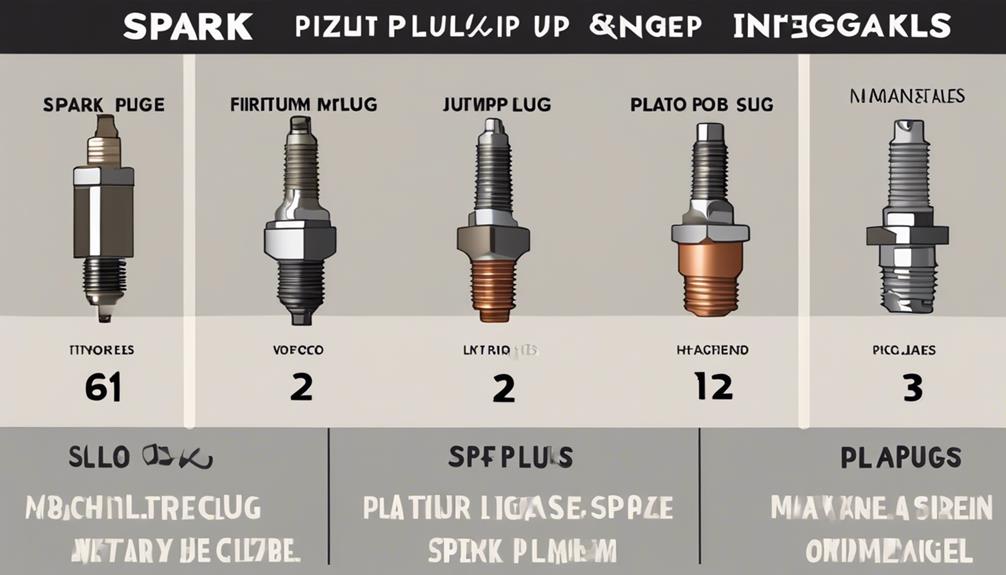
To optimize your vehicle's performance and longevity, selecting the appropriate spark plug material is crucial for achieving efficient combustion and reliable ignition. When considering the best material for your spark plugs, it's essential to understand the characteristics of each type to make an informed decision.
Here is a comparison based on material properties, longevity, conductivity, and performance:
- Copper Spark Plugs:
- Known for superior conductivity.
- Capable of running cooler, ideal for performance scenarios.
- Nickel Alloy Spark Plugs:
- Features a nickel alloy coating over a copper core.
- Protects the core from wear and high temperatures.
- Platinum Spark Plugs:
- Enhance performance, longevity, and wear resistance.
- Offer a longer lifespan of up to 100,000 miles compared to copper plugs.
- Iridium Spark Plugs:
- Significantly harder and stronger than platinum.
- Last up to 25% longer with improved electrical conductivity.
Consider these aspects when choosing the right spark plug material to ensure optimal performance and durability for your vehicle.
Frequently Asked Questions
What Spark Plugs Increase Horsepower?
For increased horsepower, consider spark plug materials like iridium. Lower heat range effects offer better combustion and emissions. Upgrading to iridium can optimize fuel economy and performance. Ensure instant starts in cold weather.
What Type of Spark Plug Gives Best Performance?
For the best performance, iridium spark plugs outshine platinum. Their hardness, high melting point, and efficient burn make them ideal. With longer life, enhanced conductivity, and lower voltage needs, iridium plugs excel over platinum for optimal engine operation.
Does Upgrading Spark Plugs Make a Difference?
Upgrading spark plugs can significantly boost performance gains by optimizing spark plug gap and combustion efficiency. Enhanced coil dwell time from iridium plugs requires less voltage, improving fuel economy and horsepower for better driving experience.
Are Higher Quality Spark Plugs Worth It?
When considering higher quality spark plugs, you'll find that the cost versus performance trade-off is worth it. Brands vary, but longevity benefits are consistent with extended change intervals. Installation is straightforward, making the upgrade a smart investment.
Conclusion
In conclusion, when it comes to spark plug upgrades, choosing the right material is crucial for optimal performance. Like a finely-tuned instrument, the right spark plug can orchestrate a symphony of power and efficiency in your vehicle.
Whether you opt for the conductivity of copper, the longevity of platinum, or the durability of iridium, investing in high-quality spark plugs will ensure your engine runs smoothly and efficiently for miles to come.
Choose wisely, and watch your vehicle soar to new heights.

